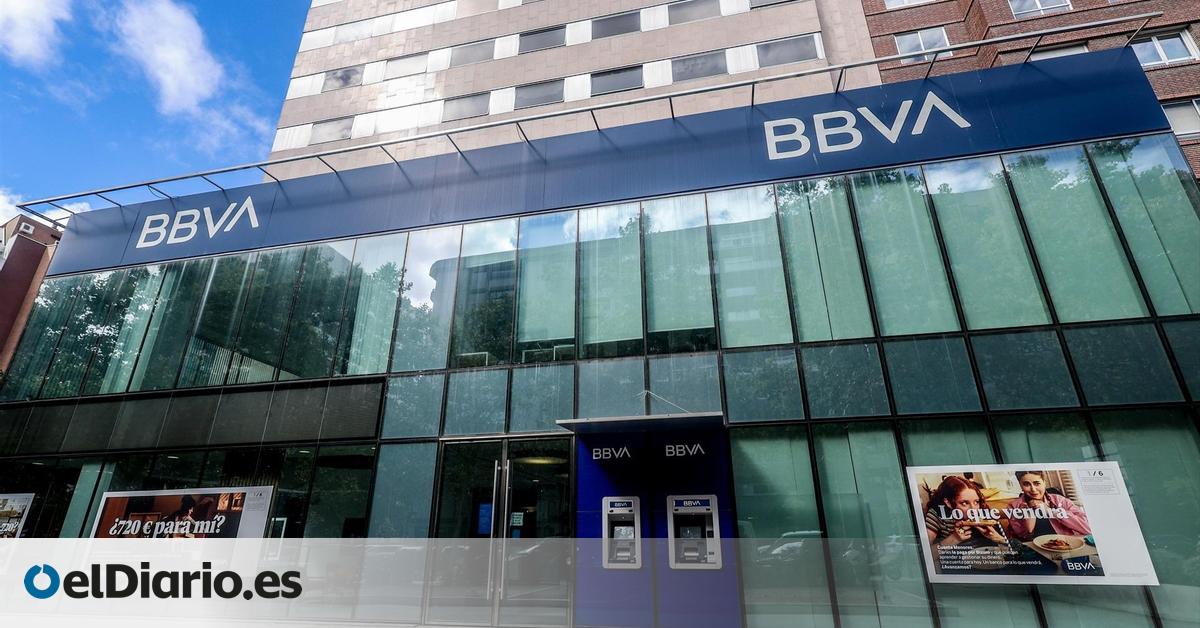
The BBVA goes for all and has decided to maintain the OPA (public acquisition offer) on Sabadell despite the conditions of the government, which prevent merger in three or five years although the purchase progresses, and that met at the Council of Ministers on Tuesday of last week.
The Bank has communicated this Monday to the National Securities Market Commission (CNMV), after the closure of the stock market, which “has decided not to give up the offer and, therefore, it remains in force.” The translation is that it is the shareholders of the Catalan entity who have to elucidate now whether or not they accept the BBVA acquisition offer.
Torres has assured that “the project creates enormous value for the shareholders of both entities and represents a unique opportunity to build one of the most competitive and innovative banks in Europe.”
“Together,” Torres added in a press release, “we will be a more solid entity, with a higher scale and with the capacity to increase the financing of families and companies by 5,000 million euros per year, thus promoting the economic growth of our country.”
The operation has received the approval of all institutions, although both the National Commission of Markets and Competition (CNMC) and the Government have put “conditions” to protect “the general interest.” Limits that have not made BBVA give up in their intention to absovered Sabadell.
BBVA may appoint a new CEO in Sabadell and change the headquarters if the shareholders of the Catalan entity accept the offer, although there is no merger with the Catalan entity in the next three years, according to the conditions that the Government has put to the OPA. A term that can be extended to five exercises.
The demand of the Government is to maintain autonomy in the management of both entities, which will not be able to lay off within the framework of this operation or the closure of offices. In addition, they will have to remain, during those three or five years, as independent entities, although BBVA has action control.
“Legal security and separate assets, and autonomous management, separate” between BBVA and Sabadell “to protect the general interest: employment, financing to SMEs, the access of customer offices. Individualized operational,” said the Minister of Economy, Carlos Body.
“If there is a change of government, in these three or five years, what will be found is BBVA’s obligation to put the reports on the table, about the independence of the two entities. It is a guarantee element, because it is aligned with the deadlines imposed by the CNMC,” added the Minister of Economy.
The BBVA draws a new stage
The BBVA’s initial plan was going to integrate Sabadell into the group to obtain 850 million savings for 850 million: 450 million in technology expenses, 300 million in personnel expenses and 100 million in financial savings.
However, in view of the rejection from the first moment of the Government to a fusion between the BBVA and the Sabadell, the buyer bank began to shuffle a scenario in which the Catalan entity would remain as a subsidiary of the group, as well as Santander had for more than two decades the Banesto.
An integration process usually takes a couple of years to complete and, in addition, the extraordinary bank tax would have a greater cost for the BBVA if it integrates the Sabadell, since it is progressive, so keeping the Catalan bank as a subsidiary the group would have a certain fiscal advantage.
On the opposite side, it is that the synergies planned in their day of 850 million would be impossible to achieve, which a priori remains attractive to the operation and forces the BBVA to recalculate their figures and causes the bank to admit from since it will need more time to materialize them.
On the paper, the agreement of the Council of Ministers prevents both the BBVA and the Sabadell from carrying out template cuts or branches linked to the operation, although it does not close the door for these to occur if they seek to maximize the value of each entity. Initially, the bank chaired by Carlos Torres, contemplated the closure of 300 offices.
As the BBVA continues with the OPA, before the shareholders decide, it remains that the CNMV approves the brochure so that the exchange period can begin. This period has to last a minimum of 15 days, which become at least 30 days, but since the possibility of concluding in August and the law is not contemplated and the law allows it to be lengthened up to a maximum of 70 days, it would continue in September.
From the Sabadell, whose dome defends itself since the OPA was launched, they consider that a good part of the small shareholders would have to pay taxes if they accept the exchange, because before receiving the BBVA shares they would have to sell those of the Catalan entity and pay for the surplus value that could be noted.
In addition to that, the bank led by César González-Well lasts a strategic plan that will present on July 24, coinciding with the results of the first half of the year, to convince its shareholders of the potential of the entity alone.
For that date, the bank will know if your British subsidiary sells, TSB, which would give you margin to announce a possible dividend distribution that could encourage shareholders to reject the BBVA exchange offer.
Santander sneaks into the OPA
The BBVA announcement is produced just the same day that it has been known that Banco Santander has presented a binding offer to acquire TSB, the British subsidiary of Banco Sabadell, which values this entity in more than 2.3 billion pounds (about 2,686 million euros), according to the agency Reuters citing sources close to negotiations.
Market funents have assured Europa Press that the bank chaired by Josep Oliu has convened a Board of Directors for Tuesday to assess this offer and Barclays, whose details have not transcended, once last Friday the deadline for receiving binding offers was closed. Asked about it, Sabadell does not comment.
If the Council is favorable to the sale of TSB, you must convene a shareholders’ board to approve the operation. The OPA imposes on Sabadell the duty of passivity, which implies that the Board of Directors has limited its actions to prevent the success of the operation, except if the decisions are approved by the Board of Shareholders, which must be called 30 days in advance.
Source: www.eldiario.es

